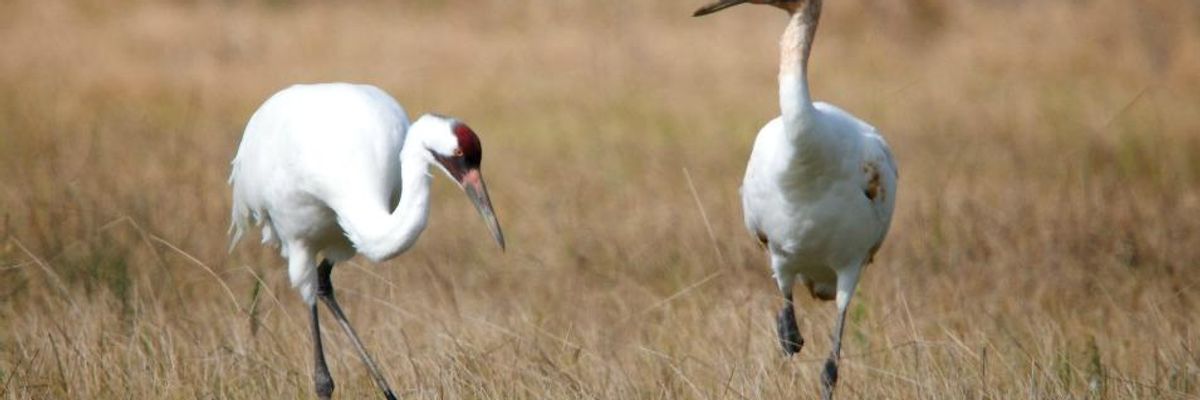The Environmental Protection Agency violated the law in approving a new herbicide for genetically modified crops, threatening "irreparable harm" to endangered species, a coalition farmers and environmental groups has charged.
The herbicide is Dow AgroSciences' Enlist Duo, which the EPA approved in October 2014 despite condemnation by environmental groups, scientists and citizens. Enlist Duo is a combination of the herbicides 2,4-D--one of the active ingredients in Agent Orange--and glyphosate--the main ingredient in Monsanto's Roundup. It is for use on the Dow Enlist-brand genetically engineered corn and soy crops, already approved by the USDA.
EPA's approval of the new herbicide was promptly met with a lawsuit by the groups, which includes the Center for Food Safety, Pesticide Action Network and the Center for Biological Diversity, who charged that the agency neither adequately considered the human impacts of its use nor--in violation of its duties under the Endangered Species Act (ESA)--consulted with the Fish and Wildlife Service (FWS) to verify that the approval would not adversely harm listed species or their critical habitat.
Building on that suit, the groups stated in a motion filed late Friday that the Court should issue a stay "to prevent irreparable harm to protected species, and by two endangered species"--the whooping crane (Grus americana) and the Indiana bat (Myotis sodalis).
EPA needed, according to ESA, to consult with FWS and/or the National Marine Fisheries Service (NMFS) regarding potential impacts of the approval on listed species, but it didn't.
"Instead, after acknowledging that its registration of Enlist Duo 'may affect' listed species, EPA relied entirely on its own internal assessments of the risks to conclude that the substantial increase in 2,4-D use ultimately will have 'no effect' on any listed species or designated critical habitat. The manner in which EPA came to this purported 'no effect' determination flatly violates this Court's consistent interpretation of the ESA's requirements," the motion states.
"EPA's assumption that only endangered plants and animals in the sprayed fields themselves, or those that feed on such plants and animals, may be affected by the spraying is arbitrary and capricious," it continues.
"EPA is well aware that pesticides routinely drift and affect public health and wildlife beyond the fields in which they are sprayed. To ignore this known risk and avoid consultation with other expert agencies is unlawful and irresponsible," stated George Kimbrell, senior attorney for Center for Food Safety, in a statement issued Monday.
Earthjustice managing attorney Paul Achitoff added, "EPA admits that its approval of a toxic pesticide cocktail including 2,4-D for widespread use may affect endangered species, including the whooping crane, one of the most endangered animals on earth."
"We ask only that the Court decide whether EPA has violated the law, as we believe it has before putting these imperiled birds at further risk," Achitoff continued.
